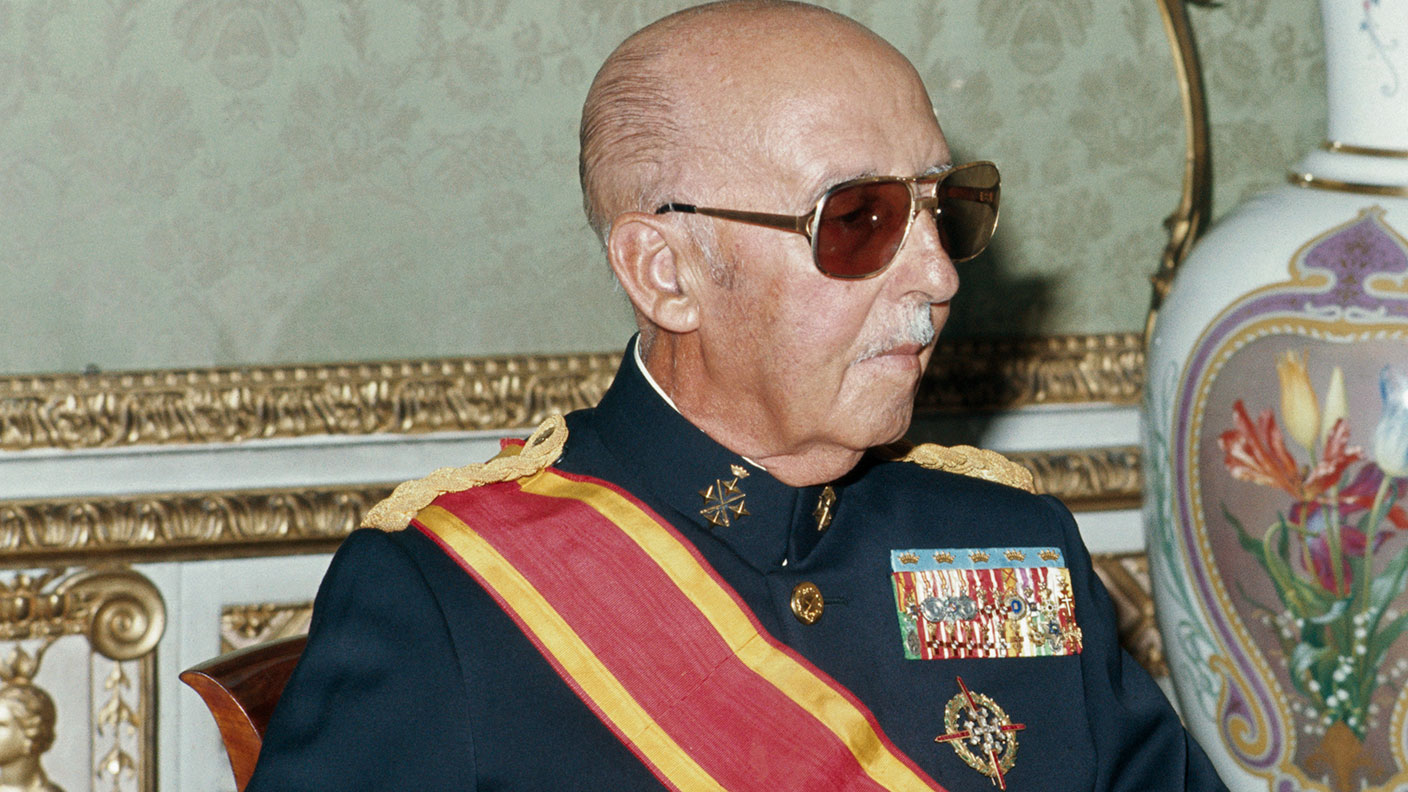30 October 1975: Spanish dictator General Franco cedes power to King Juan Carlos
With his health deteriorating, General Francisco Franco, 'caudillo' of Spain, relinquished power to the future King Juan Carlos, on this day in 1975.


Get the latest financial news, insights and expert analysis from our award-winning MoneyWeek team, to help you understand what really matters when it comes to your finances.
You are now subscribed
Your newsletter sign-up was successful
Want to add more newsletters?

Twice daily
MoneyWeek
Get the latest financial news, insights and expert analysis from our award-winning MoneyWeek team, to help you understand what really matters when it comes to your finances.

Four times a week
Look After My Bills
Sign up to our free money-saving newsletter, filled with the latest news and expert advice to help you find the best tips and deals for managing your bills. Start saving today!
The 1936 Spanish election resulted in victory for a left-wing coalition, but both the population and the army were bitterly divided. After initially staying out of the conflict, General Francisco Franco, the chief of general staff, decided to support an anti-government uprising in July 1936, leading to the Spanish Civil War.
Supported by Hitler, Franco's forces defeated the Soviet-supported government, at the cost of half a million lives, and Franco became caudillo (military leader) of Spain.
During World War II, Spain aided Germany, but officially stayed neutral, which enabled Franco's regime to survive after the end of the war. For the next 30 years, Franco ran a highly authoritarian regime, jailing dissidents and imposing political censorship. From the late 1960s, he focused his efforts on establishing Juan Carlos, grandson of Spain's former king, as his successor.
MoneyWeek
Subscribe to MoneyWeek today and get your first six magazine issues absolutely FREE

Sign up to Money Morning
Don't miss the latest investment and personal finances news, market analysis, plus money-saving tips with our free twice-daily newsletter
Don't miss the latest investment and personal finances news, market analysis, plus money-saving tips with our free twice-daily newsletter
By October 1975, Franco's health deteriorated and he was forced to relinquish his power, although Juan Carlos was not crowned until Franco's death in November.
Instead of maintaining the Francoist regime, Juan Carlos moved to democratise Spain, removing pro-Franco ministers and allowing free elections in 1977. An attempted military coup in February 1981 was foiled in part by the king's dramatic TV broadcast denouncing the plot.
This strengthened support for the monarchy and Juan Carlos enjoyed high public approval for most of the next three decades. But a decision to go on a $60,000 hunting trip in 2012, at a time of high unemployment, badly damaged his popularity. He abdicated in favour of his son two years later.
Get the latest financial news, insights and expert analysis from our award-winning MoneyWeek team, to help you understand what really matters when it comes to your finances.

-
 Can mining stocks deliver golden gains?
Can mining stocks deliver golden gains?With gold and silver prices having outperformed the stock markets last year, mining stocks can be an effective, if volatile, means of gaining exposure
-
 8 ways the ‘sandwich generation’ can protect wealth
8 ways the ‘sandwich generation’ can protect wealthPeople squeezed between caring for ageing parents and adult children or younger grandchildren – known as the ‘sandwich generation’ – are at risk of neglecting their own financial planning. Here’s how to protect yourself and your loved ones’ wealth.